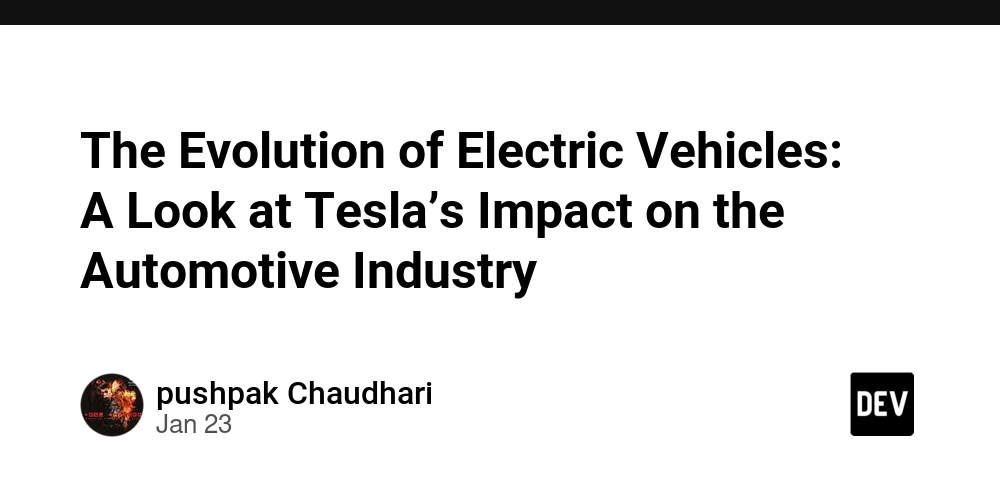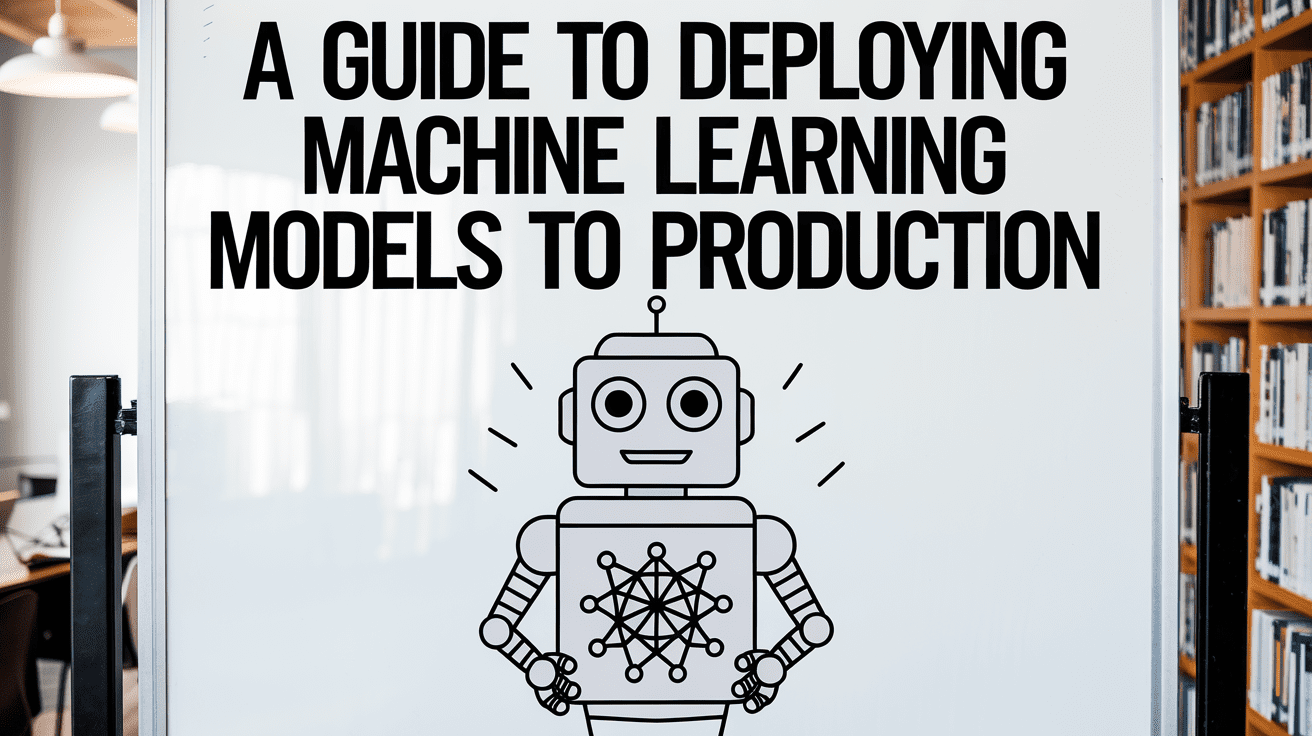The Evolution of Electric Vehicles: A Look at Tesla’s Impact on the Automotive Industry
As we enter 2025, the automotive industry is undergoing a significant transformation, primarily driven by the rise of electric vehicles (EVs). Among the key players in this revolution is Tesla, a company that has not only popularized electric cars but has also set new standards in technology, sustainability, and consumer expectations. This blog explores Tesla's influence on the automotive landscape, the advancements in EV technology, and what the future holds for electric vehicles. Tesla's Vision and Innovation Founded in 2003, Tesla's mission has always been to accelerate the world's transition to sustainable energy. Under the leadership of CEO Elon Musk, Tesla has disrupted the automotive industry by introducing innovative technologies and redefining consumer perceptions of electric vehicles. The company's commitment to sustainability is evident in its product line, which includes not only electric cars but also energy storage solutions and solar products. Key Innovations by Tesla: Long-Range Batteries: Tesla has developed advanced battery technology that allows its vehicles to travel longer distances on a single charge. The introduction of the 4680 battery cell promises to enhance energy density and reduce costs, making EVs more accessible to consumers. Autopilot and Full Self-Driving (FSD): Tesla's Autopilot system is one of the most advanced driver-assistance technologies available today. The company continues to refine its FSD capabilities through software updates, moving closer to fully autonomous driving. Over-the-Air Updates: Unlike traditional automakers, Tesla vehicles receive regular over-the-air software updates that enhance functionality and introduce new features. This approach keeps vehicles up-to-date without requiring physical visits to service centers. Supercharger Network: To address range anxiety among EV users, Tesla has built an extensive network of Supercharger stations across various countries. This infrastructure enables quick charging and encourages long-distance travel in electric vehicles. The Broader Impact of Electric Vehicles Tesla's success has inspired other automakers to invest heavily in electric vehicle development. Major companies like Ford, General Motors, Volkswagen, and BMW are now committing substantial resources to electrify their fleets. This shift is driven by several factors: Environmental Concerns: With increasing awareness of climate change and air pollution, consumers are seeking more sustainable transportation options. Governments worldwide are also implementing stricter emissions regulations, further incentivizing the shift towards electric vehicles. Technological Advancements: Improvements in battery technology, charging infrastructure, and manufacturing processes have made electric vehicles more viable than ever. As costs continue to decrease, EVs are becoming competitive with traditional internal combustion engine vehicles. Changing Consumer Preferences: Today's consumers are more tech-savvy and environmentally conscious than previous generations. They prioritize features such as connectivity, performance, and sustainability when choosing a vehicle. Challenges Facing the Electric Vehicle Market Despite the progress made in recent years, several challenges remain for the widespread adoption of electric vehicles: Charging Infrastructure: While Tesla has made significant strides with its Supercharger network, many regions still lack adequate charging facilities. Expanding charging infrastructure is essential for encouraging EV adoption. Battery Production and Recycling: The demand for batteries is expected to surge as more consumers switch to electric vehicles. Ensuring sustainable production methods and effective recycling processes will be crucial for minimizing environmental impact. Market Competition: As more automakers enter the EV market, competition will intensify. Established brands must innovate continuously to keep pace with newcomers like Rivian and Lucid Motors while maintaining profitability. Consumer Education: Many potential buyers remain unaware of the benefits of electric vehicles or have misconceptions about their performance and range. Educating consumers about EV technology is vital for overcoming these barriers. The Future of Electric Vehicles Looking ahead, the future of electric vehicles appears promising: Increased Model Variety: As automakers expand their EV offerings, consumers will have access to a broader range of models across different segments— from compact cars to SUVs and trucks. Advancements in Autonomous Driving: Continued development in autonomous driving technology will enhance safety and convenience for drivers while reducing traffic congestion. Integration with Renewable Energy: The synergy between electric vehicles and renewable energy sources will grow stronger as more consumers adopt solar power solutions for home charging stations. Government Inc

As we enter 2025, the automotive industry is undergoing a significant transformation, primarily driven by the rise of electric vehicles (EVs). Among the key players in this revolution is Tesla, a company that has not only popularized electric cars but has also set new standards in technology, sustainability, and consumer expectations. This blog explores Tesla's influence on the automotive landscape, the advancements in EV technology, and what the future holds for electric vehicles.
Tesla's Vision and Innovation
Founded in 2003, Tesla's mission has always been to accelerate the world's transition to sustainable energy. Under the leadership of CEO Elon Musk, Tesla has disrupted the automotive industry by introducing innovative technologies and redefining consumer perceptions of electric vehicles. The company's commitment to sustainability is evident in its product line, which includes not only electric cars but also energy storage solutions and solar products.
Key Innovations by Tesla:
Long-Range Batteries: Tesla has developed advanced battery technology that allows its vehicles to travel longer distances on a single charge. The introduction of the 4680 battery cell promises to enhance energy density and reduce costs, making EVs more accessible to consumers.
Autopilot and Full Self-Driving (FSD): Tesla's Autopilot system is one of the most advanced driver-assistance technologies available today. The company continues to refine its FSD capabilities through software updates, moving closer to fully autonomous driving.
Over-the-Air Updates: Unlike traditional automakers, Tesla vehicles receive regular over-the-air software updates that enhance functionality and introduce new features. This approach keeps vehicles up-to-date without requiring physical visits to service centers.
Supercharger Network: To address range anxiety among EV users, Tesla has built an extensive network of Supercharger stations across various countries. This infrastructure enables quick charging and encourages long-distance travel in electric vehicles.
The Broader Impact of Electric Vehicles
Tesla's success has inspired other automakers to invest heavily in electric vehicle development. Major companies like Ford, General Motors, Volkswagen, and BMW are now committing substantial resources to electrify their fleets. This shift is driven by several factors:
Environmental Concerns: With increasing awareness of climate change and air pollution, consumers are seeking more sustainable transportation options. Governments worldwide are also implementing stricter emissions regulations, further incentivizing the shift towards electric vehicles.
Technological Advancements: Improvements in battery technology, charging infrastructure, and manufacturing processes have made electric vehicles more viable than ever. As costs continue to decrease, EVs are becoming competitive with traditional internal combustion engine vehicles.
Changing Consumer Preferences: Today's consumers are more tech-savvy and environmentally conscious than previous generations. They prioritize features such as connectivity, performance, and sustainability when choosing a vehicle.
Challenges Facing the Electric Vehicle Market
Despite the progress made in recent years, several challenges remain for the widespread adoption of electric vehicles:
Charging Infrastructure: While Tesla has made significant strides with its Supercharger network, many regions still lack adequate charging facilities. Expanding charging infrastructure is essential for encouraging EV adoption.
Battery Production and Recycling: The demand for batteries is expected to surge as more consumers switch to electric vehicles. Ensuring sustainable production methods and effective recycling processes will be crucial for minimizing environmental impact.
Market Competition: As more automakers enter the EV market, competition will intensify. Established brands must innovate continuously to keep pace with newcomers like Rivian and Lucid Motors while maintaining profitability.
Consumer Education: Many potential buyers remain unaware of the benefits of electric vehicles or have misconceptions about their performance and range. Educating consumers about EV technology is vital for overcoming these barriers.
The Future of Electric Vehicles
Looking ahead, the future of electric vehicles appears promising:
Increased Model Variety: As automakers expand their EV offerings, consumers will have access to a broader range of models across different segments— from compact cars to SUVs and trucks.
Advancements in Autonomous Driving: Continued development in autonomous driving technology will enhance safety and convenience for drivers while reducing traffic congestion.
Integration with Renewable Energy: The synergy between electric vehicles and renewable energy sources will grow stronger as more consumers adopt solar power solutions for home charging stations.
Government Incentives: Many governments are implementing policies to encourage EV adoption through incentives such as tax credits and rebates. These initiatives will help accelerate the transition towards sustainable transportation.
Conclusion
Tesla's impact on the automotive industry cannot be overstated; it has redefined what consumers expect from electric vehicles while pushing traditional automakers to innovate rapidly. As we move into 2025 and beyond, the evolution of electric vehicles will continue to shape our transportation landscape—promoting sustainability, enhancing technological integration, and changing consumer behaviors.
For businesses looking to harness technology effectively in this evolving landscape, partnering with experts can make a significant difference. Hexadecimal Software specializes in software development solutions that cater to various industries including automotive technology. With a focus on innovation and quality assurance, Hexadecimal Software can help organizations navigate technological advancements successfully.
To learn more about how Hexadecimal Software can assist your business with tailored software solutions or explore insights on emerging technologies, visit Hexadecimal Software or check out HexaHome's blog for expert opinions on innovations shaping our digital future.
What's Your Reaction?



























